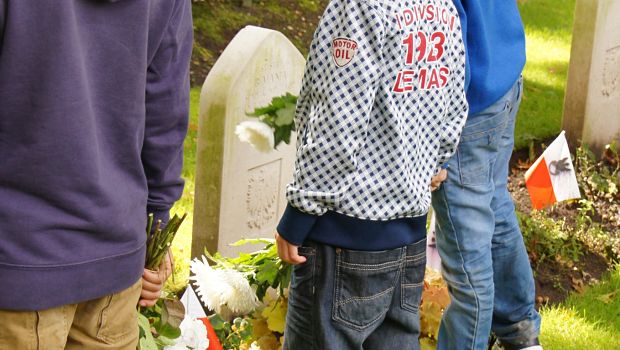How do you tell young children about death?
The passing of a beloved relative makes us face one of the hardest challenges of parenthood: explaining the concept of death to a child.
My father-in-law died on Thursday. I had always presumed that when it came, it would be protracted. Modern health care so often makes the death of old men a diminishment, rather than a cleaving.
He was 84, old enough to remember playing truant the day War started, so it was hardly a surprise.
But it was remarkably quick. The first call, telling us he was being taken to hospital, came during The Apprentice. The final, during the Ten o’clock News.
My wife, not many hours later, left to catch the first train out of London to be with her sisters and mother.
I lay awake in bed wondering how I was going to tell the children – the first of their four grandparents to die; a giant of a man and a linchpin of a large, Catholic family.
The 12-year-old had a particularly close relationship with him. My father-in-law taught him chess, and they played more or less as equals. Out of all the grandchildren he’d get the lion’s share of the pack of dolly mixture that ‘Grumpy’ would stash by his armchair. Or, at least, he was allowed to think so.
At 7am, unusually, all four came together into my bedroom on their way down to breakfast. Less unusually they were squabbling – over the misappropriation of a toothbrush.
One of them said: “Where’s Mummy?”, looking at the empty space in the parental bed.
“Well,” I said cautiously. “I’ve got some bad news. She’s had to go up to Cumbria.”
“Is someone ill?” said the 10-year-old, always well attuned to shifting moods in a room.
“Um. It’s worse than that, I’m afraid,” I say, and tell them.
They stand there a bit sheepishly. I look carefully at the 12-year-old trying to divine how upset he is. He looks blank.
The seven-year-old girl asks brightly: “How did he die?”
“It was a heart attack,” I say.
“Michael Jackson died of a heart attack,” says the 10-year-old.
“Can I get a heart attack?,” asks the girl, rubbing her chest. “I do have a cold.” She then coughs in case I was in any doubt.
She is already obsessed by her own mortality, and I anticipate – correctly – that this is going to kick-start a week of thinking she’s about to keel over at any moment.
I tell her firmly that she will not die from a heart attack.
With that, we all make our way down to breakfast.
The youngest, nearly four-years-old, says as I am pouring the cereal: “What was the bad news?”
The 10-year-old explains clearly the facts to his younger brother about how he won’t see Grumpy again. He doesn’t look convinced this is bad news.
We then discuss the evening’s plans; we are all going to the primary school’s International Evening – a mostly dreary event, consisting of a raffle, food, a kids’ disco, and parents standing around the cold playground drinking wine out of plastic cups. Most of the children love it, but I always suspect it is designed to make the English, middle-class parents feel inadequate that they can’t contribute any Eritrean curry (delicious, by the way).
As we trot to school, the seven-year-old – after asking me to examine her veins on the back of her hands for signs of imminent death – says: “You know, I am sad about him dying. But I am also really, really excited about International Evening.”
I tell her that’s OK.
They say children cope with death so well because they are resilient. I think it’s because can’t see beyond the next meal.


Leave a Comment
You must be logged in to post a comment.